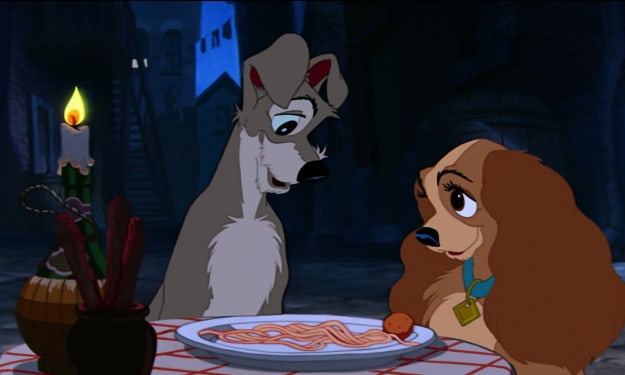Accurate Representation is Important
and it's taking too long!

I was thrilled when Disney released the trailer for "Encanto". Not just for their more recent branch of more diverse movies and the representation of different cultures, or the fact that the movie seems like a blast with great animation and music, but for the simple fact that Mirabel, the movie's main character, wears glasses.
The Walt Disney Company released their first feature length film in 1937, and it's taken them till 2021 to create a female protagonist with glasses. While it's definitely taken a few decades too long, I'm excited for the little kids who wear glasses to watch this movie and see themselves, finally getting some more representation. Mirabel, from what I can see in the trailer, looks like a pretty cool person, and that's the kind of representation I think is crucial. Accurate representation, showing that literally any kind of person can happen to wear glasses. No one is the same, there is no normal, and "the default person" shouldn't be expected to look a certain way, or to need or not need glasses.
I hope they treat her glasses as a completely normal and natural thing, and that they don't make it a "thing", as they don't even need to acknowledge them. We'll see when the movie comes out. It's disappointing that it's taken this long to see more representation of main characters wearing glasses, especially as we don't often see other aids people use, disabilities or disorders or anything out of the usual normative standard, where there is little to no difference in people. I do understand that Disney movies generally take place in completely fictional and unrealistic worlds, and that they don't reflect our normal lives. But when the characters are human presenting, which they are a great portion of the time, it's good that we can see ourselves in them.
Previously, Disney has largely used glasses as a character trait rather than the visual aid that they are. They've quite consistently been used to show that a person is either a nerd or extremely intelligent. I can only recall three other Disney classics protagonists wearing glasses. The first one is Milo Thatch from "Atlantis", a linguist and cartography expert who throughout most of the movie gets made fun of for being a nerd, and people generally avoid socialising with him. The next character with glasses is Chicken Little from "Chicken Little", who has the role of a weak classmate who gets picked on and no one wants on their PE team. Lastly it's Lewis Robinson from "Meet the Robinsons", who is an extremely smart inventor who excels within his field, and manages to revolutionise the world and take their technology to a whole new level. This is the representation we have seen so far from protagonists with glasses.
It's not only Disney who has used glasses as more of a character trait than simply a vision aid. Traditionally it's been used for characters as a stereotypical nerd, a victim of bullying or a less popular person. Whenever you see those really cool characters who everyone wants to be friends with and who's successful at everything, they rarely wear glasses. Representation shouldn't put people in boxes, it should show that anyone can be anything they want.
Throughout history we've seen countless examples of bad representation in movies and TV shows. The way people are presented is usually within their stereotype, and not as useful representation that could possibly make people from the group feel better. If a show or movie has gay people in it, it's often a lesbian stud or a feminine guy. If it has a plus-size character, their size is usually acknowledged, and the person is either really funny, or they're constantly the butt of a joke. The plus-size person is also rarely the love interest, and the same goes for black people. Another example that we see often is autistic people being portrayed as geniuses, which leads to many autistic people in real life being met with expectations to be extremely smart or have huge talents for things such as maths or science.
Another stereotype is that disabled always means a person in a wheelchair who can't use their legs. That's usually the disability representation that we get. It's sad, as this is something that really sticks with people, and wheelchair users are left with constantly having to clear up the misconceptions. Here we also face the issue of able-bodied actors being cast to play disabled characters, when there are many disabled actors out there. It's refreshing to see that this is getting better, though. I just want to mention how the show "Sex Education" has not only cast an actually disabled character to play the disabled person, but they show them as a sexual being. It's rare to see this, but so helpful for the disability community.
I hope we continue to see more accurate and wider representation, as we really need to see more perspectives on screen.
----------------------------------------------------------------------------------------
If you enjoyed this article, please share it on your social media and send it to someone you think will like it too!
If you enjoyed this article and would like to support me, you can send me a tip below this story, which would be greatly appreciated.
Thank you so much for your support!
About the Creator
Tone Breistrand
Hi there! I am a Norwegian writer living in London. I like to write about love, Disney and finding happiness.







Comments
There are no comments for this story
Be the first to respond and start the conversation.